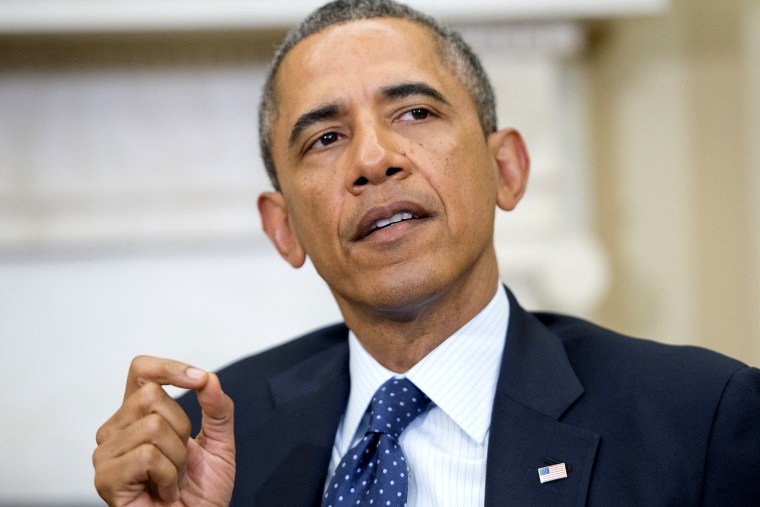State of the Union addresses are always more about domestic than foreign policy, but President Barack Obama’s 2014 speech could be consequential in terms of the direction of U.S. policy in the Middle East, global perceptions of American power (and the president himself) and even matters of war and peace. It depends on what Obama says about Iran--and whether Congress listens to him.
This year puts him in the position of urging a Congress widely criticized for doing nothing to do just that when it comes to proposed legislation that threatens more sanctions against Iran if ongoing nuclear negotiations fail. The legislation should remain on the shelf and off the House and Senate floors.
Supporters of the legislation, and there are many, advance a deceptively simple argument. National and international sanctions raised the costs of Iran’s nuclear program significantly and opened the door to negotiations. More sanctions, they say, would “strengthen” the U.S. negotiating position. It may seem like an easy vote, particularly in an election year, but it is one with potentially dire consequences.
Iran already knows more sanctions are inevitable if negotiations stall. Even though the legislation suspends further sanctions while negotiations continue, Iran has threatened to walk away from the talks if Congress acts, even with a presidential veto.
If the talks fail –and Obama has set the odds of success at less than 50-50 – the administration rightly wants the responsibility to rest with Iran, not the United States. Call this the “no excuses” strategy, which would leave a smoother road for additional sanctions, the same dynamic the administration generated in 2010.
The Obama administration negotiated an interim agreement in November that went into force last week. The deal puts obstacles in the way of a potential breakout by Iran (although there is little indication Iran intends to do that under current conditions). Iran’s centrifuges are still spinning, but Iran has stopped production of highly enriched uranium and will reduce existing stocks. In short, there is time and space to negotiate in good faith and see if an acceptable deal is possible.
The United States and its partners appear prepared to accept some limited Iranian enrichment in a final agreement, which Israeli Prime Minister Benjamin Netanyahu has described as a “bad deal.” Given the Israeli doubts, some advocates want the negotiations to fail unless Iran agrees to surrender its nuclear program entirely. There is no reason to think that Iran would agree to such a deal. Iran’s stated “right” to enrichment enjoys clear domestic support. Iranian President Hassan Rouhani is popular at home and abroad, but like Obama, he confronts his own set of skeptics, particularly among Iran’s military elite.
Political impulses on the Hill favor solidarity with Israel and being tough on Iran, but there is not an attractive Plan B to a diplomatic solution. The other viable options are military preemption or containment. Military preemption would set back Iran’s program, but probably impel Iran to build a weapon as a regime survival weapon. Iran can be contained, but if Iran goes nuclear, it is possible other regional powers would do the same.
In his State of the Union address, Obama needs to call out the skeptics. A vote for sanctions now is not a vote for war but it is a vote against a diplomatic solution that is in America’s interest. The president must make clear that bringing up the bill is neither risk-free nor cost-free.
Action now is not necessary, increases the costs of failure and raises the potential that the end result is the very outcome everyone wants to avoid: Iran with an actual weapon and an arms race in a region that already confronts more than it can handle in the aftermath of the Arab uprisings.
The president’s challenge is significant but his message to Congress is simple: do no harm. Congress needs to pay close attention.
P.J. Crowley is a former Assistant Secretary of State and now a professor of practice and fellow at The George Washington University’s Institute of Public Diplomacy & Global Communication.
